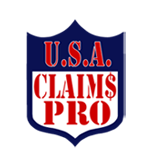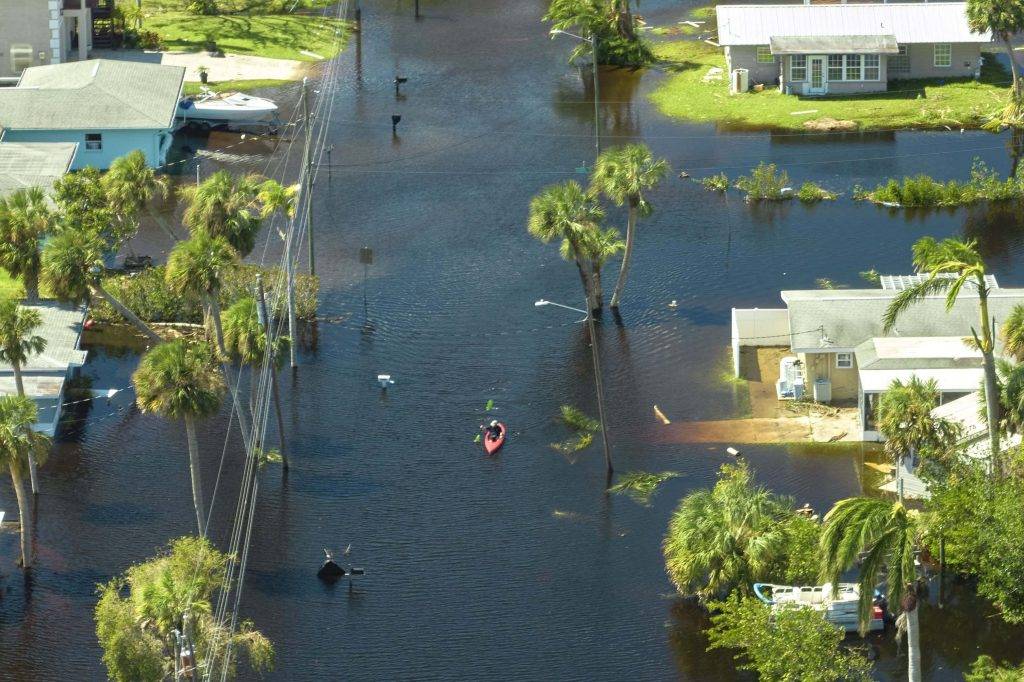Climate scientists generally concur that global climate change leads to more intense and frequent flooding. Floodplains continue to expand, placing more homes at risk from complete inundation. Unfortunately, most homeowners insurance policies exclude damage from the flood, although certain types of water damage might be covered. Flood insurance coverage can be invaluable for homeowners living in high-risk areas like Florida, yet even lower-risk homes should also consider purchasing coverage as floods can strike anywhere and often leave significant damages that require costly repairs. Flood insurance can be purchased either privately from an insurance company or via the National Flood Insurance Program, but homeowners need to understand both options as they pertain to protecting their investment from floodwaters.
What Is Flood Insurance?
Flood insurance can provide your home and its contents against potential flood damages caused by overflow of water onto normally dry land. Unfortunately, however, flood damage insurance policies usually only cover mudflows but not mudslides or their aftermaths.
Flood damage claims can be invaluable as losses related to flooding may not be covered under traditional homeowners’ policies. Flood insurance coverage is offered by both the National Flood Insurance Program and some private insurance companies; many homeowner policies also include this add-on coverage option as an optional endorsement.
Your policy will take effect later when purchasing flood insurance; typically, a 30-day waiting period must pass before any flood claims can be filed unless your purchase or refinancing of your home requires this coverage or has previously been designated a flood zone.
What types of coverage does flood insurance provide?
The National Flood Insurance Program provides two kinds of flood coverage – dwelling coverage and content coverage – at affordable rates.
Dwelling Coverage: Dwelling coverage is required when purchasing flood insurance policies; therefore, you cannot opt-out. Dwelling coverage protects from structural damages caused by floodwater to your home structure, appliances installed within it, and attached structures as a whole; its coverage limit stands at $250,000. No matter how valuable your home may be.
Content Coverage: Content coverage includes clothing, furniture, and home decor up to your policy limits. If desired, National Flood Insurance Policies offer contents insurance with up to $100,000 coverage maximums available per policy.
Private flood insurance companies provide affordable coverage at different rates than the National Flood Insurance Program, offering different options and higher coverage limits than its national equivalent, providing peace of mind in times of flooding. You should compare this coverage against your risk for catastrophic flood damage exceeding $250,000 or $100,000 limits to determine whether higher flood coverage limits may be needed.
Private flood policies typically activate in 10 days or less compared to NFIP’s 30-day waiting period, and carriers often enforce temporary moratoriums during storm or major weather events. Comparing quotes from several private flood insurers will ensure you find an affordable plan with coverage suitable to your individual needs and price.
What does flood insurance cover?
Flood insurance policies contain exclusions similar to home insurer policies; for instance:
Moisture, mildew, and mold damage which could have easily been avoided, is caused by earth movements (including landslides) as well as damage caused to outdoor structures (decks, patios, pools) and landscaping. Also, additional living and dining expenses, if necessary, will increase exponentially due to flood damage.
Flood insurance does not cover internal sources of water damage such as bursts or malfunctioning sump pumps; depending on your coverage plan, however, home insurance could cover sudden and accidental water damages caused by these situations. Remember, though, that certain coverages require riders or endorsements in addition to being provided automatically.
Does flood insurance need to be purchased?
Although your area is relatively protected from flooding events, the Federal Emergency Management Agency reports that 95% of US counties experienced one between 1996 and 2019. Furthermore, an average NFIP claim payment for flooding damage amounted to $52,000 during that timeframe.
Flood insurance should only be purchased under certain conditions; for instance, when applying for a mortgage for an oceanfront vacation home. Flood coverage can be seen as a wise investment, even if your risk for flood damage is minimal.
How to File a Flood Insurance Claim?
Flood damage can be costly and devastating, yet having flood insurance may lessen its financial ramifications. Here are a few things you should remember if filing a water damage insurance claim due to a flood.
Contact your company’s insurance agent: Once flooding has taken place, notify your insurance provider as quickly as possible so they can guide and instruct you through the flood insurance claims process and provide specific guidance and instructions on what actions they require of you to complete a successful flood claims process.
Document the damage: Take photos or video footage before beginning repairs or cleaning services to support your property insurance claim and guarantee a fair settlement for you and any possible claims that might be filed. This way, the evidence you present can only bolster the claim and guarantee maximum claim settlement is received from insurers.
Mitigate damage: Take immediate steps if it is safe to do so to limit further damage, whether that means moving furniture, initiating the drying process in damp areas, or covering broken windows. Keep receipts for any emergency expenses so they may qualify for reimbursement later on.
Review Your Policy: Educating yourself about your flood insurance policy’s details – such as coverage limits, deductibles, and exclusions – will enable you to set realistic expectations.
Keep meticulous records: While filing your homeowner’s insurance claim for flood damage, keep an accurate log of every communication with your insurer, including dates, names of people involved, and references, so you can track its progression and detect discrepancies more easily.
Work with insurance company adjusters: Your insurer will assign an adjuster to assess any damages. Provide all the required documents and attend any inspections to make sure everything is noticed.
Estimate cost of repair: Secure multiple estimates from licensed contractors who can perform your necessary repairs, then send these to the insurance company as evidence of your claim. Make sure all needed repairs are included within this estimate, working closely with an adjuster to reach an understanding.
Depreciation should be understood: Your insurance company will consider age, wear-and-tear damages, as well as preexisting damage when calculating the value of your property damage claim and may make payment less than its full worth. This could result in a lower settlement figure compared to the original purchase cost of the damaged item(s).
Reconsider Your Settlement Offer: Once a claims adjuster has calculated an offer amount, carefully evaluate it. If it seems inadequate or needs tweaking, negotiate with your insurer, provide more evidence or request another evaluation of this settlement offer.
Hire public claims adjuster: If an insurer denies your claim or provides an insufficient entire settlement offer, you can consult public insurance claim adjusters to understand better. Unlike company adjusters, independent adjusters or public adjusters work on your behalf. They will look for your interest. A public insurance adjuster will assist you in documenting the losses to negotiate a favorable settlement.
Florida Insurance Claims Expert Public Adjusters
ClaimsPro USA is one of the leading public adjusting firms in Florida, having a team of professional public adjuster Orlando licensed to serve across Florida. We can assist in filing your flood insurance claim if you require help. We specialize in insurance claim filing services to simplify the process for our clients and can guide them to filing claims quickly and successfully.

